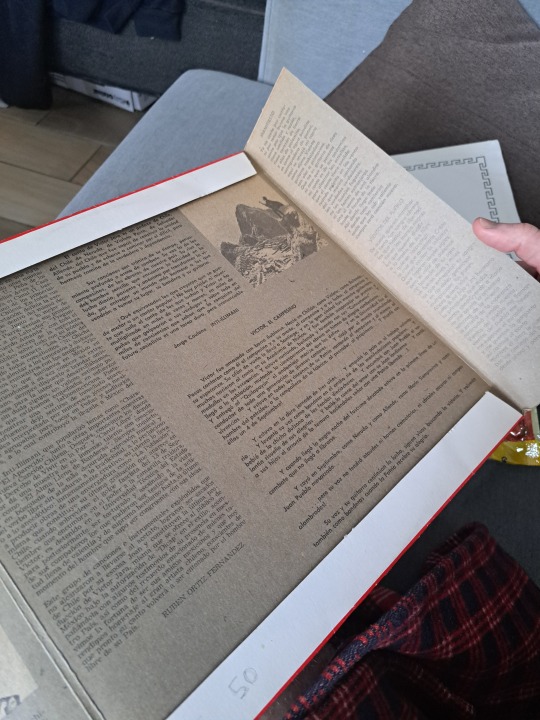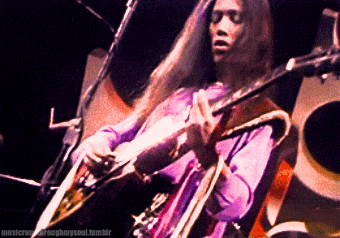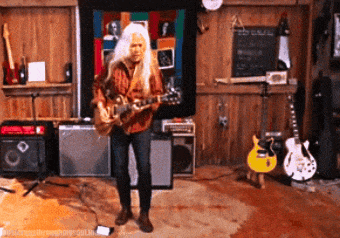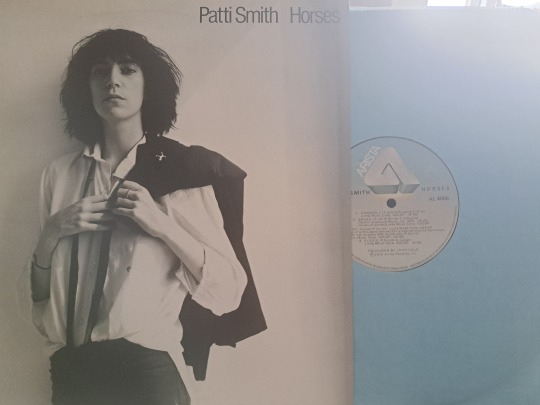#'70s Music
Explore tagged Tumblr posts
Text

Angus Young & Bon Scott, 1979
#angus young#bon scott#acdc#ac/dc#ac dc#hard rock#rock#rock music#highway to hell#rock and roll#rock'n'roll#rock 'n' roll#rocknroll#rock n roll#1979#1970s#1970s rock#1970s music#70s#70s rock#70s music#70's#70's music#70's rock#'70s#'70s music#blues#blues rock
518 notes
·
View notes
Text

The Runaways-1975
546 notes
·
View notes
Text
youtube
Something old,
something new
something blue
something borrowed
for the new guy
#the band Ghost#Rite here rite now#the future is a foreign land#Tobias Forge#'60s music#'70s music#Papa Nihil#Cardinal Copia#Cardi#Papa Emeritus IV#Papa Emeritus V#Youtube
20 notes
·
View notes
Text
312: Victor Jara // Manifiesto

Manifiesto Victor Jara 1975, Discos Pueblo
Manifiesto is assembled from recordings intended for an album that was to be called Tiempos que cambian (literally Times That Change, or New Times) smuggled out of Chile by Jara’s widow Joan after the folksinger’s torture and murder by the Pinochet junta in 1973. It was simultaneously released by different labels under a variety of titles around the world. My copy hails from Mexico, released by leftist folk label Discos Pueblo, who make their intentions clear in a statement (machine-translated by me) on the back of the sleeve that reads in part:
“We find it necessary to point out that due to its quality and value, Victor Jara’s work should be disseminated, but always by those who identify with it, and not by the transnational companies that financed his return to Chile by organizing the bloody military coup of 1973. [Ed. Something in their use of word “retorno” is probably being lost in translation here; I think it implies something like Jara’s “return to whence he came,” e.g. his burial in Chilean soil.] Those transnational corporations that today benefit from Victor Jara’s singing, filtering out its combative aspects and presenting it as incomplete, seem to ignore the deep paths that people use to preserve the integrity of the voice of their singers. This album is our answer.”
The LP is clearly a work of love (and economy), the sleeve purposely left unglued so that it can be opened like a gatefold, revealing testimonies by his peers. There’s scarcely an inch that isn’t crammed with text—even the flaps that cradle the inner sleeve itself hide lyrics to two of the album’s key songs:

The sleeve unfolded.
“I don’t sing for the sake of singing, or for having a good voice, I sing because the guitar has sense and reason, it has a heart of earth and wings of a dove, it is like holy water that blesses my sorrows. This is where my song fits, as Violeta said, a hard-working guitar that smells of spring. It is not a rich man’s guitar or anything like that, my song is the scaffolding to reach the stars. The song has meaning when it beats in the veins of the one who will die singing truths, not fleeting flattery or foreign fame, but the song of a lark to the bottom of the earth. There, where everything arrives and where everything begins, a song that has been brave will always be a nueva cancion [New Song].”
youtube
Jara’s artistry (which, besides spearheading the nueva cancion movement, also included poetry and theatrical direction) was inseparable from his politics, and the music of Manifiesto is a stirring testament to his talents and the historical moment he occupied, when Chile like Cuba before it seemed on the verge of breaking free from centuries of resource extraction-driven imperialism and making its own way. These songs cannot help but feel elegiac given the circumstances of their release, and indeed they do frequently mourn the historical oppression of the common worker. Jara’s was a lark’s voice, not that of a conventional rabble rouser, and most of these songs seem best suited for night-time gatherings of comrades and lovers or, in the case of the dazzling instrumental “Caicai Vilu” (referencing a Mapuche creation myth), perhaps a rural cotillion. But these songs were recorded during the years of Salvador Allende’s triumph, a movement that Jara had personally helped galvanize, and there is the sense that these are songs about moving in a changed world that still feels almost surreal. Only at the very end, with the rock-inflected call to arms “Canto libre,” does Jara’s Revolutionary sentiment take on a more martial beat, finally unfurling a flag of victory.
That victory would be short-lived of course, as U.S. imperialists would soon back Pinochet’s reign of terror and grind the Chilean people under the heel of fascism for another generation. It’s hard to make an argument that Jara and Allende’s side “won” in any meaningful sense (without an appeal to some abstracted moral arbiter anyway). It may be blinkered to even try, knowing that Pinochet died obscenely wealth in his nineties and that there were never meaningful consequences for his even wealthier American backers, while a despairing Allende perished at his own hand and Jara with his fingers broken and his body riddled with bullets. Yet I do believe that a song can transcend the accounting of atrocities and persist on its own terms. Music like Jara’s will endure as long as there are human beings who seek a recognition of their own worthiest qualities in art. As one of the Mexican edition’s compilers says:
“…his voice will not have coffins or crematoriums, nor dark prisons nor barbed wire, comrades! His voice and his guitar continue the fight, they remain alive seeking victory. And they will also return as flags when the Homeland regains its joy.”
youtube
312/365
#victor jara#chilean music#salvador allende#protest music#latin american music#chile#latin america#andean folk#revolutionary music#socialism#operation condor#augusto pinochet#'70s music#leftism#music review#vinyl record
21 notes
·
View notes
Text






Happy birthday, June Millington! (b. April 14, 1948)
"I don’t think I came to music. I think music came to me—or was already embedded when I came into this sphere, this realm, this Earth. And that feels really good because it’s part of the fabric that makes me feel a part of everything." (x)
#happy birthday!#June Millington#Fanny band#Fanny Walked the Earth#classic rock#blues rock#pop rock#rock music#'70s music#1970s#guitar goddess#I TOLD YOU ALL I WAS GONNA SPOTLIGHT JUNE PLAYING SLIDE GUITAR :') or at least for this#I still unfortunately need to legitimately make a gifset of June playing slide guitar. I just don't know which performances to gif!#at least writing IDs/captions take longer than they do to make gifs. LOL I don't know if my IDs are any good but I try :(
5 notes
·
View notes
Text
Poll:
16 notes
·
View notes
Text

Ooh. This is SO GEN X.... hopefully some of you younger ones will get it too.
39K notes
·
View notes
Text






kate bush featured on top pop (tv), march 1978 ꩜
#there are so many great photos from her performance so i might upload some more later!#music#kate bush#wuthering heights#fashion#1978#70s#1970s#seventies#1970s fashion#photography#aesthetic#whimsigoth#vintage#old school cool#style#70s style#70s aesthetic#70s fashion#70s girl#70s music#women in music#female musicians#vintage fashion#vintage style#rock n roll#rock photography#music photography#art rock
21K notes
·
View notes
Text

Shelley Duvall, 1970s
#shelley duvall#girlblogging#lana del rey#vintage aesthetic#vintage fashion#jane birkin#lana del rey aesthetic#this is a girlblog#marilyn monroe#1970s movies#1970s#1970s fashion#1970s music#1970s history#seventies#70s style#70s fashion#70s aesthetic#70s#70s movies#70s music#1970s aesthetic#1970s style#this is what makes us girls#coquette aesthetic#classic coquette#coquette#rockstar gf#groupies#vintage
5K notes
·
View notes
Text


susan sarandon in "the rocky horror picture show", 1975
#susan sarandon#1975#rocky horror picture show#70s#70s aesthetic#vintage#1970s#70s fashion#70s hair#60s#70s music#70s horror#movie#film#actress#musical#tim curry#1974#70s icon
9K notes
·
View notes
Text
"I'm not like other girls." Well, that's good for you, but I am. I love reading books and fanfics. I love obsessing over fictional characters and screaming music at the top of my lungs. I love fangirling over celebrities and getting overly invested in ships that will never be canon. I cry over sad endings and laugh at memes no one else understands. I love getting way too excited over small things, daydreaming about impossible scenarios, and staying up late to finish just one more chapter. I love getting lost in fictional worlds, losing sleep over them, and rewatching my favorite shows a million times. I love spending hours scrolling through fan art and feeling alive through the stories, music, and love for people I will never meet. I love being like other girls.
#girlhood#booklr#books and reading#ao3#fanfiction#ao3 feed#ao3 fanfic#ao3 fic#music#harry potter#taylor swift#bts#sabrina carpenter#the marauders#wolfstar#jegulus#jily#dorlene#drarry#steddie#wenclair#stranger things#arcane#good omens#marauders#marauders era#marauders fandom#the marauders era#dead gay wizards#dead gay wizards from the 70s
4K notes
·
View notes
Text


Kate Bush performing in Japan, 1978
#kate bush#music#history#1970s#1978#70s#retro#vintage#dance#aesthetic#photography#gothic#classic rock#Pop culture#women in music#fashion#concert#japan#Wuthering heights
6K notes
·
View notes
Text

Jimi Hendrix
193 notes
·
View notes
Text

comment on 10cc - im not in love
17K notes
·
View notes
Text
365: Patti Smith // Horses

Horses Patti Smith 1975, Arista
There’s a man named Nicky Drumbolis who lives up in Thunder Bay, Ontario, in an apartment that doubles as perhaps Canada’s greatest bookstore almost no one has ever seen. The septuagenarian Drumbolis is short and nearly deaf, a master printmaker and eccentric autodidact linguist. For years he ran a second-hand shop on Toronto’s Queen St. called Letters, until push (the size of his collection) came to shove (skyrocketing rent) and he went north, where he could afford a sufficiently large space to spread out. Unfortunately, Thunder Bay has little market for antiquarian books and micro press ephemera, and his shop is located on one of the most crime-ridden streets in the country. And so, the transplanted Letters has no storefront—in fact, the building looks derelict, its windows boarded up and covered with what at first glance seems to be graffiti but on closer inspection resembles a detail from the cave paintings at Lascaux. Letters’ patronage is limited to the online traffic in rare first editions that brings him a small income, and the occasional by-appointment adventurer willing to make the long, long 1,400 km drive from Toronto or further abroad.
When you enter, you find yourself in what appears to be a well-kept single room used bookstore, the kind there used to be dozens of in every major city. Books of every type and topic line the shelves, neatly arranged by category, and a long glass display features more delicate items, nineteenth century broadside newspapers and the like, some so fragile they seem on the verge of crumbling into dust. But this is not, Drumbolis warns you as soon as you attempt to take a book off of the shelf, a bookstore: this room is a facsimile, a tribute exhibit to as he calls it, “the fetish object formerly known as The Book.” The real bookstore lies in the chambers beyond this front room, the full catalogues of bygone presses, the one-of-one personal editions he’s assembled over decades of following his personal obsessions, the stacks which crowd his own modest sleeping quarters.
To Drumbolis, the original utility of the book as a container and mediator of information is now effectively passed; virtually every popular book in existence has been digitized, their contents instantly available in formats that are better-indexed, more easily parsed, and more readily transferrable than the humble physical book ever allowed. To desire a book is to desire possession of the thing rather than its contents, this edition, this printing, perhaps this particular copy that once passed through the hands of someone significant. He can show you the copy of John Stuart Mills’ On Liberty that was owned by Canada’s founding father John A. MacDonald, and argue convincingly that this object helped set the course of a nation’s history; or a set of Shakespeare’s complete works bearing Charles Dickens’ ex libris, which sets off a long anecdote about how Dickens liked to troll his houseguests with a collection of fake bookshelves. Drumbolis’s collection is threaded through his life like an old wizard in a fantasy novel whose flesh has fused with the roots of a tree: he eats with his books and he sleeps with them; collecting fuels his arcane research and dictates where and when he travels; 25 years ago he uprooted his life when his collection bade him, and though he’s starved for company in the frozen city it chose for him, he abides.
youtube
My own case of collectivitis is not so advanced, though Lord only knows what I’ll be like when I’m Old (I’m currently 47). And despite the conceit of this blog, I’ve seldom spent much time in these reviews dwelling on the physical properties of my records, evaluating the relative merit of pressings and the like (or even mentioning which one I’ve got). But as I sit here listening to my copy of Patti Smith’s Horses for the first time, I feel a small but definite sense of wonderment. It’s an early ‘80s Canadian pressing, so near-mint I might’ve stepped back in time and bought it new, still with what I take to be the original inner-sleeve, pale azure (to match the Arista disc label) with a texture almost like crepe paper.

It’s a delightful, surprising contrast to the iconic black and white cover portrait of Smith by her former paramour Robert Mapplethorpe. Generations of fans have stared at this image as they listened, not simply because Smith is hot (though this is undeniably true) but because the music’s visionary qualities demand an embodied locus. That a record, unlike a book, can speak aloud, has always primitively fascinated me; that this one contains what I can only describe as rituals makes it magical, this physical copy that is unique because it’s this one that is speaking to me in this moment.
Smith writes on the back of the sleeve:
“…it’s me my shape burnt in the sky its me the memoire of me racing through the eye of the mer thru the eye of the sea thru the arm of the needle merging and jacking new filaments new risks etched forever in a cold system of wax…horses groping for a sign for a breath…”
“charms, sweet angels,” she concludes. “you have made me no longer afraid of death.” The record becomes an extension of Smith’s body as it existed in that time—I think here of the physicality of the moment in “Break it Up” where you can faintly hear her striking her own chest with the flat of her palm to make her voice quaver. It makes me wonder how anyone could sell this thing once they have it: not because it is particularly rare or difficult to acquire, but because it’s hard for me to imagine the experience of slipping the lustrous black disc from its dressing and setting the needle down upon it as anything but a personal one. It is poetry and waves; the subliming of the idea of a rave-up; Tom Verlaine shedding his earthly mantle in an explosion of birds; John Cale; Kaye, Král, Daugherty, and Sohl; one of my boys from Blue Öyster Cult; the pounding of hooves and the Mashed Potato.
I suppose what I’m describing is a fetish, my pleasure in acquiring these things and writing these reviews the hard and strange work of finding life’s joy in its dusty corners. This year has run through my fingers like water, as it seems they all do now. But on my good days, all these words behind me and the records in front of me seem like a document of abundance.
youtube
365/365
#patti smith#horses#john cale#lenny kaye#ivan král#blue oyster cult#tom verlaine#punk rock#art rock#female singer#poetry#collecting#music review#vinyl record#'70s music#the end
10 notes
·
View notes